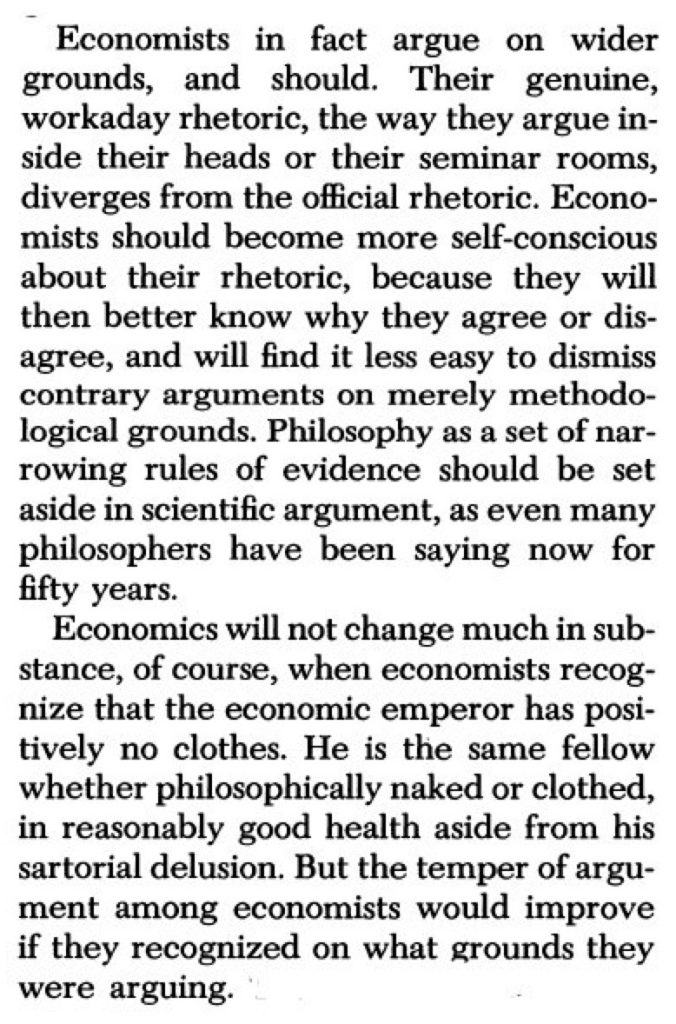I started reading Elizabeth Anderson’s Value in Ethics and Economics, having read an intriguing profile of her in the New Yorker recently, and am about two chapters in. The book is in Michael Sandel territory. It got off to a bad start by setting up the usual straw man version of economics: “Markets are represented as the generically rational form of human organization,” she writes. “To count as rational, any other domain of human interaction would have to be governed by the same principles as the market.” This is passive voice, but it most economists I know certainly don’t think like that (there’s also clearly an issue about different meanings of the word rational’ but that’s another matter.
However, the book quickly improves by pointing out the limitations of the focus on individual choice with too little attention in economics to social influence. This for me is a problem in terms lack of conformity with reality, never mind ethics. The second chapter then hones in on the inadequacies of utilitarian consequentialism as a foundation for conceptions of economic welfare (although a Very Distinguished economist told me recently that if I wasn’t a utilitarian, I wasn’t an economist). Interestingly, Anderson seems to see a feedback loop between ethical value and social norms – “social norms are constitutive of rational attitudes” – it reminded me of Robert Sugden’s recent book, The Community of Advantage.
It’s slightly heavy going, as so much philosophy is. Oh for an equation or two to clarify the logic! But I shall carry on. I’m reading a second hand copy and amusingly one of the previous readers has heavily marked the book with references to God as the source of ethical value, challenging Anderson with citations to Corinthians I and so on. But luckily only for the intro and chapter 1, giving up on godless ethics at that point.
[amazon_link asins=’0674931904′ template=’ProductAd’ store=’enlighteconom-21′ marketplace=’UK’ link_id=’3d6ebcac-1aac-4f43-8cc1-cc514fc6d78b’]

